Where is the best coffee producing area in Yunnan? what is the taste of Yunnan small coffee beans?
Coffee has entered everyone's attention and has become an irreplaceable drink. With the increase of people's love for coffee, coffee is not limited to imports. Coffee in our country has also embarked on the road of fine coffee. Yunnan is not only a good place, but also a good place to travel. At the same time, Pu'er tea is very famous, but now coffee has become a feature of Yunnan. Yunnan is a good place to grow coffee. And Qianjie has a Qianjie coffee farm in Yunnan.
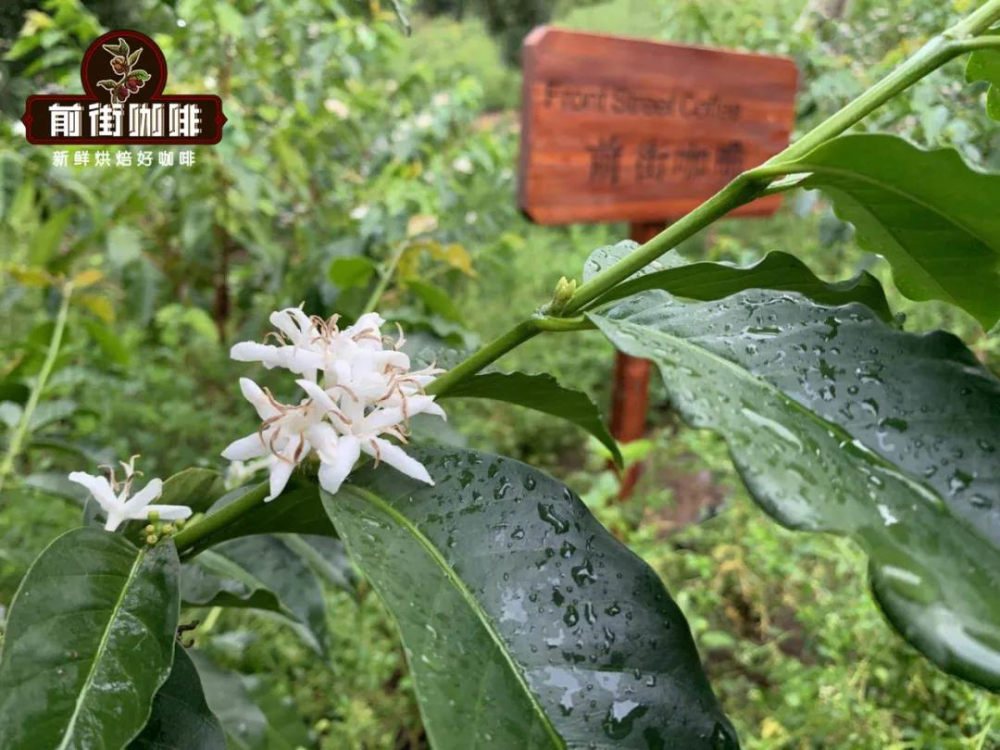
Coffee producing areas in Yunnan
In Qianjie Coffee, there is a Yunnan small-grain coffee, which is very popular, which also shows that people have a level of understanding of their own country's coffee. Yunnan coffee also comes into our sight and likes this taste. Why is Yunnan suitable for growing coffee? Qianjie told everyone: coffee is also a kind of crops, just like coconuts grow well in Hainan, but what if they come to Guangdong? Not necessarily, this is the product of the climate of each place. Coffee is generally suitable for growing between the Tropic of Cancer and the Tropic of Cancer, which we call the "coffee belt". It just so happens that the west and south of Yunnan Province are located between 15 °N and the Tropic of Cancer, and most areas also have the high altitude needed to grow and produce coffee. the topography is dominated by mountains and slopes, with large undulation, fertile soil, sufficient sunshine, abundant rainfall and large temperature difference between day and night.
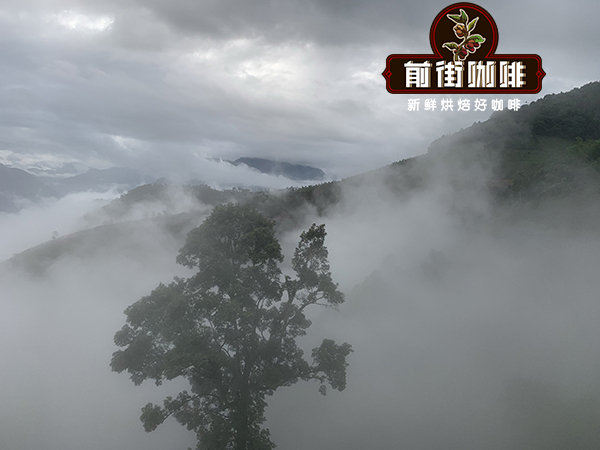
In fact, Yunnan has a long history of growing coffee. Qianjie learned that it can be traced back to 1904, when a French missionary brought coffee to Yunnan from the border between China and Vietnam. When he successfully planted the first coffee tree in a place called Zhu Kula, he might not have thought that a hundred years later, coffee had become a bright spot in agriculture on the Yunnan plateau. Of course, most of this batch of coffee trees have been wiped out, and what remains is only the witness of history.
Around 1930, Mr. Liang Jinshan, a famous overseas Chinese leader, brought coffee to Pudong and Luoming for planting until the founding of the people's Republic of China. After 1952, under the guidance of experts in Baoshan, Lujiang and other places began to grow a large number of coffee. The history of large-scale cultivation has been nearly 60 years, which can be seen as the first outbreak of coffee cultivation in Yunnan. In the 1890s, Zhukula, Binchuan County, Dali, China, was introduced. Since then, it has taken root and developed in Chinese mainland. The characteristics of Yunnan coffee beans have also become the representative of Chinese coffee, so Yunnan coffee is also known as "Yunnan small grain coffee".
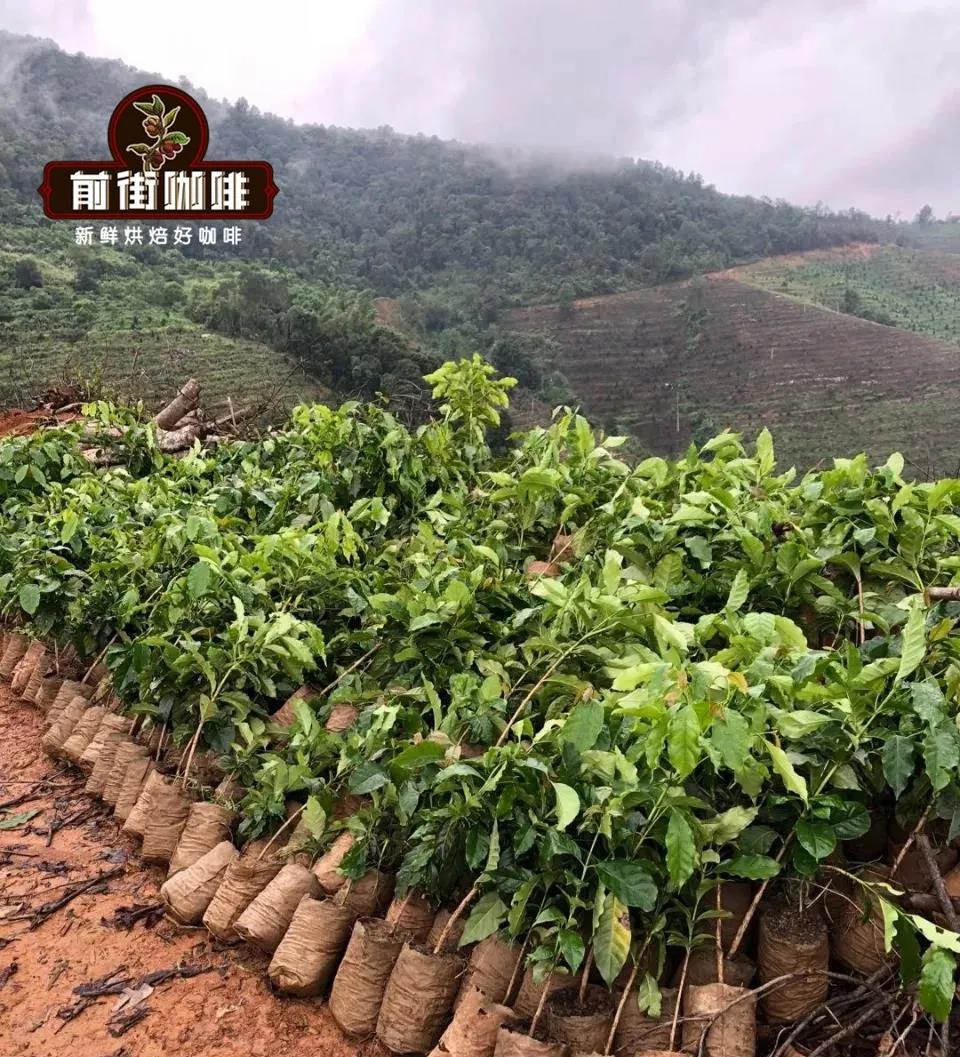
Yunnan coffee is mainly grown in these places: Pu'er, Xishuangbanna, Wenshan, Baoshan, Dehong, Lincang and other places.
Dehong
Dehong climate resources are also unique, the whole state is close to the Tropic of Cancer, the latitude is low, affected by the Indian Ocean southwest monsoon, belongs to the south subtropical monsoon climate. The Gaoligong Mountain in the northeast blocks the entry of dry and cold air from Siberia to the south, and in summer, the warm and wet air from the Indian Ocean rises along the southwest sloping mountain windward slope, forming abundant natural precipitation, coupled with the large angle of solar incidence and good air transparency in the low-latitude plateau. it is one of the areas with high light quality in the country.
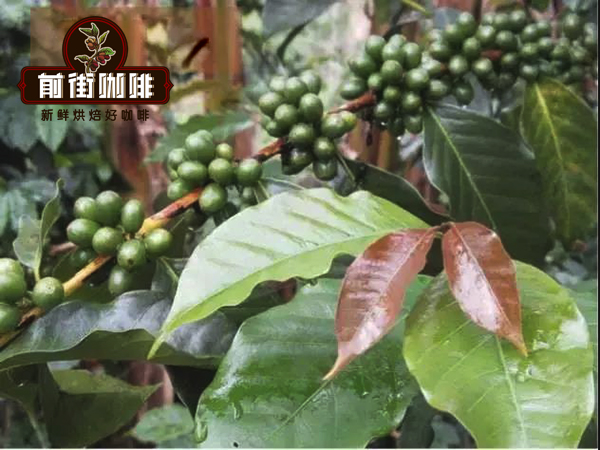
The annual solar radiation is 137 Mel 143 cal / cm, the annual rainfall is between 1400 and 1700 mm, the annual average temperature is 18.4 to 20 degrees Celsius, the annual sunshine is 2,281 Mel 2453 hours, the annual accumulated temperature is 6400 Mel 7,300 degrees Celsius, the annual land evaporation is between 1400 Mel 1900 mm, and the drought index is between 0.4 Mel 1.2. Dehong has formed the characteristics of no severe cold in winter, no heat in summer, abundant rainfall, the same period of rain and heat, dry and cold in the same season, small annual temperature difference, large daily temperature difference, short frost period and less frost days, which provides good growth and overwintering conditions for coffee trees.
Baoshan
The cultivation of coffee in Baoshan began in the mid-1950s, and the first coffee seedling was introduced by the late patriotic overseas Chinese Mr. Liang Jinshan in Southeast Asia. In recent years, with the expansion of international trade, Lujiangba's small-grain coffee is more famous.
Baoshan is a low-latitude mountain subtropical monsoon climate, because it is located in the low-latitude plateau, the topography is complex, forming a three-dimensional climate of "one mountain is divided into four seasons, ten miles different days". Its characteristics are: the annual temperature difference is small, the daily temperature difference is large, the average annual temperature is 14 Mel 17 °C, the precipitation is abundant, dry and wet is distinct, the distribution is uneven, and the annual rainfall is 700 Mel 2100 mm.
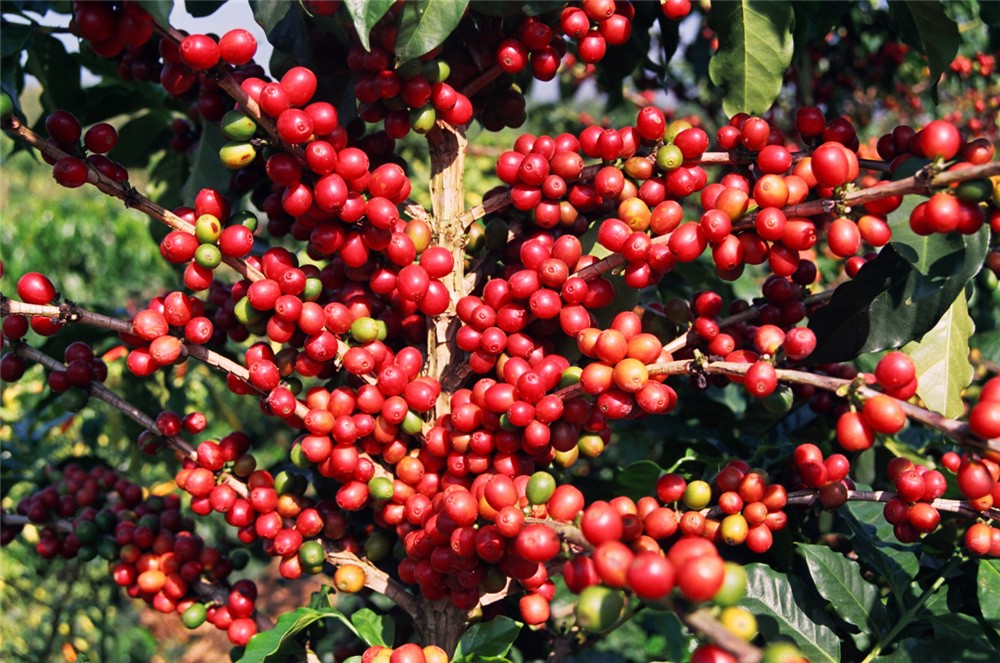
Lincang
The coffee estate in Qianjie is in Lincang. Because of its unique geographical location and climatic conditions, Lincang has become the focus of many coffee enterprises, and 200 mu and 100 mu of high-quality coffee breeding bases have been established in Mengding Town and Lincang Happy Farm in Gengma Autonomous County of the city. coffee is planted in Gengma, Zhenkang, Yun County, Cangyuan, Yongde and other places.
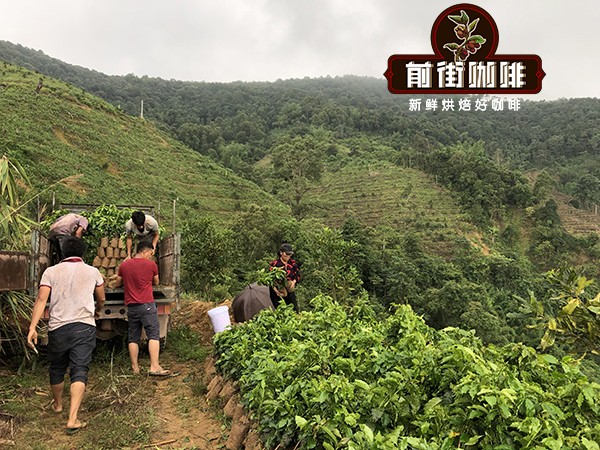
Lincang City belongs to the subtropical low-latitude plateau mountain monsoon climate, the topography is complex, is an area of various climate types. Lincang is mainly affected by the warm and humid air flow in the Indian Ocean and the southwest monsoon, and the distinction between the four seasons is not obvious, but the dry and rainy season is distinct, Rain Water is more, the sunshine time is long, the annual average sunshine number is more than 2000 hours, the frost period is relatively short, and there is no frost in some areas all the year round; the three-dimensional climate is obvious, and the annual average temperature in the mountain area is 13 degrees Celsius.
Pu 'er Tea
Tea village Pu'er has cultivated coffee for 150 years. At the end of 1990s, Pu'er City began to cultivate coffee as a dominant backbone industry to adjust the industrial structure and increase farmers' income. Due to the influence of the subtropical monsoon climate, most of Pu'er is frost-free all the year round, cold in winter and hot in summer. The average annual temperature in Pu'er is 15 to 20.3 degrees Celsius, the annual frost-free period is more than 315 days, and the annual rainfall is 1100 to 2780 mm.

Coffee varieties in Yunnan
Yunnan coffee and Manning coffee are both Asian beans, and the varieties are a little similar, so they all have a little bit the same flavor, that is, pine and nut flavor, but Yunnan coffee has one local characteristic, that is, plum acid and black tea feeling.
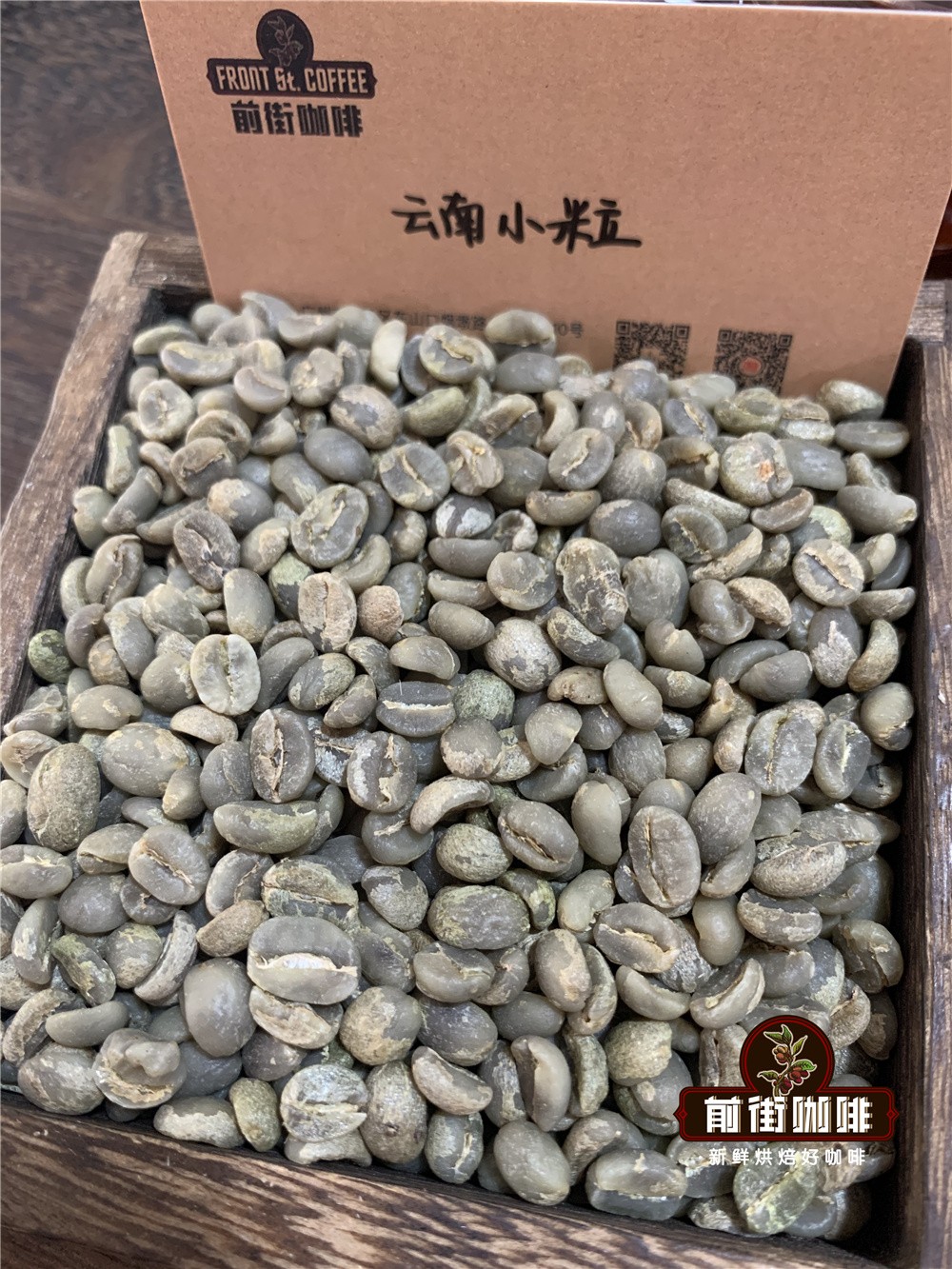
Qianjie Coffee believes that the taste of Yunnan comes from its Katim variety, which has been cultivated for many years, so Qianjie Coffee chose a Yunnan Katim as the entry-level food rations of Qianjie Coffee, that is, one of the rations of Qianjie Coffee. Its flavor is nut, brown sugar, mellow thickness and overall balance. Although classified under the Arabica species, Katim is not entirely Arabica. Katim is a hybrid of Timor and Kaddura, Kaddura we know is a natural variety from Bourbon, and Tim is a coffee variety with Robusta gene, and Robusta's lineage also gives Katim higher disease resistance, pest resistance and yield. But it also means that the taste is not refined.
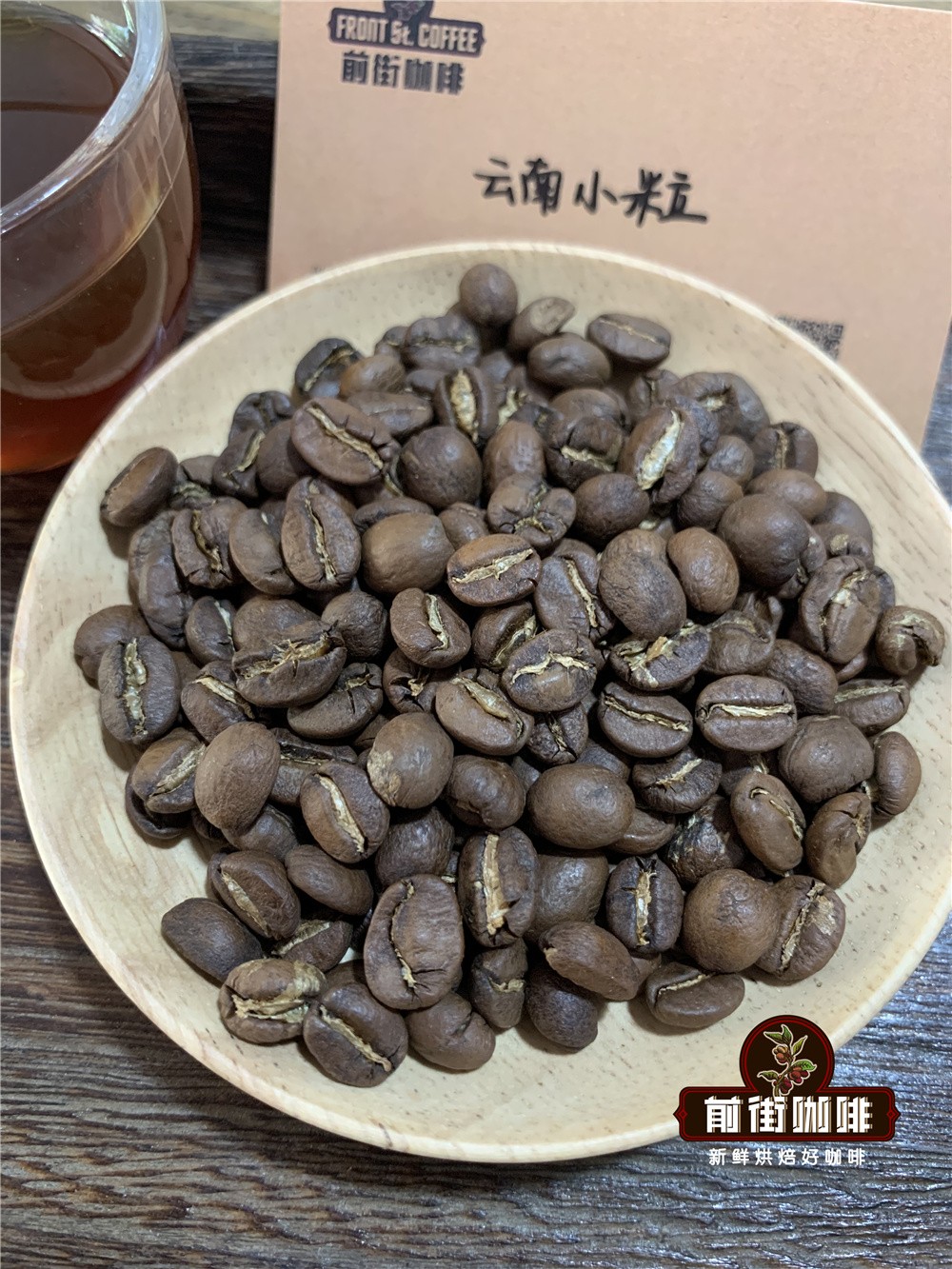
The treatment of Yunnan Coffee
The flavor characteristics of each kind of coffee beans are inseparable from its treatment methods. At the same time, a more suitable treatment method was adopted according to the climatic conditions at that time. The weather in Yunnan is rainy and foggy, so washing treatment has become the most commonly used method of coffee treatment in Yunnan. Yunnan coffee is mainly treated by water washing, which is characterized by cleanliness, stability and higher acidity. What is the process of washing treatment? The peel and pulp of the picked coffee fruit are removed by a practical machine, the peeled coffee beans are put into a fermentation tank for fermentation, the pectin layer is decomposed by fermentation, and the fermented coffee beans are washed repeatedly with clean water to remove the decomposed pectin. Finally, the coffee beans are dried. The flavor of Yunnan coffee beans treated with water does not have the miscellaneous flavor of sun beans, but has very obvious fruit acid. Finally, the dried coffee beans can be stored and waiting to be shipped everywhere.
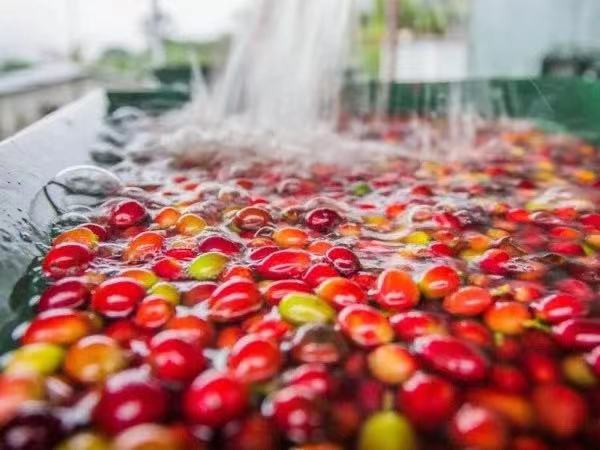
Almost all the rations of Qianjie coffee are treated with water washing, because the water washing treatment is characterized by stability, high yield and fewer defects, which can best reflect the flavor characteristics of coffee beans. This is also one of the favorite treatments of Qianjie coffee. Of course, later, in order to adapt to the introduction of more coffee flavor, the treatment was innovated on the basis of the original sun and water washing.
Suggestion on brewing coffee in Qianjie
For coffee brewing, Qianjie recommends using freshly roasted coffee beans for brewing, so that you can maximize the rich flavor of coffee. The coffee beans shipped in Qianjie are all roasted within 5 days, because Qianjie is well aware that the freshness of coffee beans has a great impact on the flavor. The purpose of Qianjie roasting is "freshly roasted coffee", so that every guest who places an order is the freshest coffee when he receives it. The bean cultivation period of coffee is about 4-7 days, so when the guest gets it, it is the time when the flavor is the best.
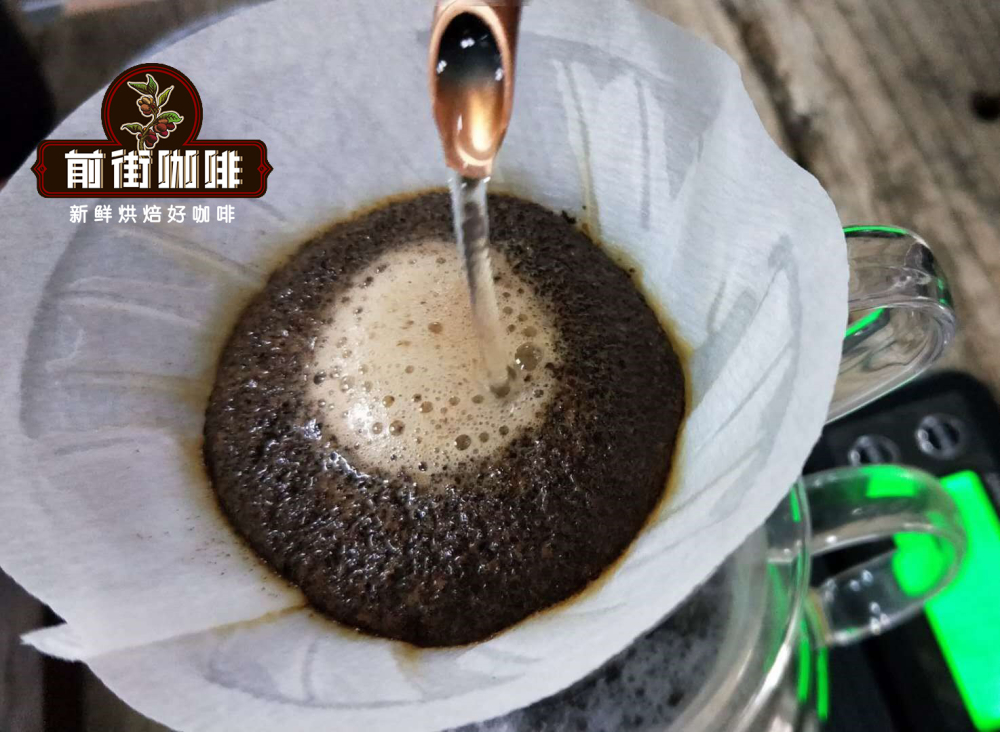
Of course, the prerequisite for these is to keep the coffee beans fresh. Qianjie Coffee knows that the freshness of coffee beans has a great impact on the flavor. The purpose of Qianjie roasting is "freshly roasted coffee", so that every guest who places an order is the freshest coffee when he receives it. Therefore, the coffee beans shipped in front of the street are roasted within 5 days, and the bean cultivation period of the coffee is about 4-7 days, so it is the best time for the guest to get it.
Of course, there are some customers who need help grinding powder in front of the street, which doesn't matter, but Qianjie has to warn: if the coffee beans are ground ahead of time, there is no need to raise the beans, because in the process of transportation, the pressure caused by carbon dioxide in the package can also make the coffee flavor mellow, so when you receive the coffee powder, you can immediately make a cup of coffee drink. But the coffee powder needs to be brewed in time, because the coffee powder oxidizes more quickly after contact with the air, that is to say, the flavor of the coffee will dissipate more quickly, and the flavor of the coffee is not so good. Therefore, Qianjie suggests buying whole beans, grinding and flushing now, so that we can better taste the flavor of coffee.
Parameters of Yunnan coffee brewed in Qianjie:
In order to retain the sweet and sour and tea characteristics of Yunnan coffee, Qianjie coffee roasted it moderately. V60 filter cup can be used when brewing, powder-water ratio at 1:15, medium grinding (about the size of coarse sugar / 75% screening rate of China 20 standard sieve), water temperature of 88 degrees.
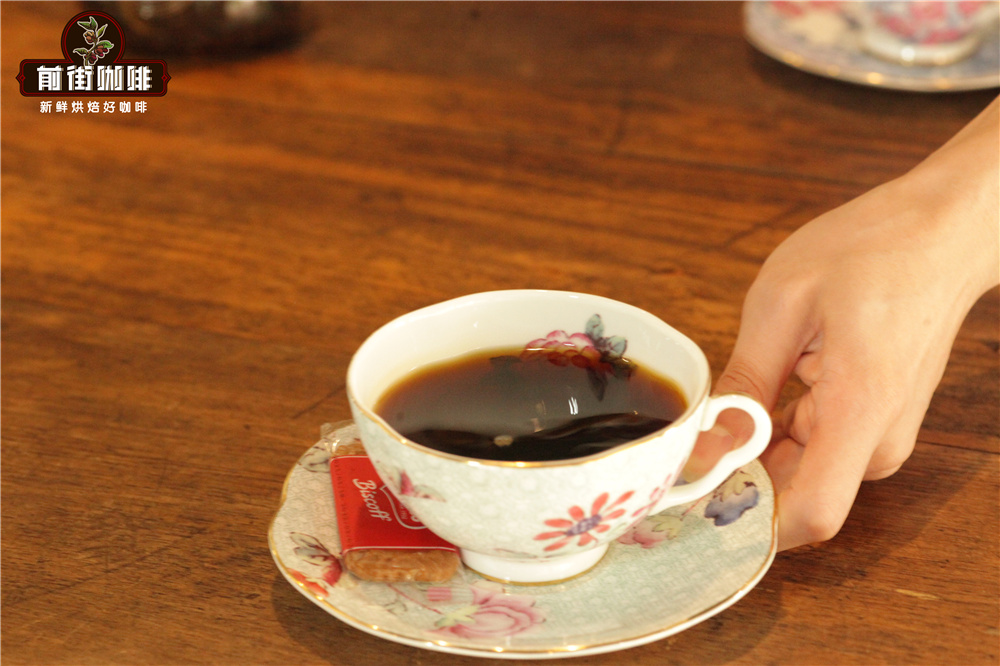
Qianjie coffee Yunnan small coffee beans flavor: nuts, chocolate, spices, caramel, plums.
Of course, there are more than 50 kinds of coffee products, which are available in all producing countries and regions, so coffee fans can choose more of their favorite coffee to drink.
Professional coffee knowledge exchange more coffee bean information please follow the coffee workshop (Wechat official account cafe_style)
For more boutique coffee beans, please add private Qianjie coffee on Wechat. WeChat account: qjcoffeex
Important Notice :
前街咖啡 FrontStreet Coffee has moved to new addredd:
FrontStreet Coffee Address: 315,Donghua East Road,GuangZhou
Tel:020 38364473
- Prev
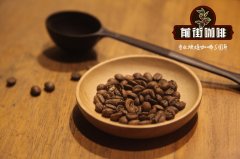
Yunnan Coffee Brand Yunnan famous Coffee Brand where is the best coffee bean in Yunnan
Professional coffee knowledge exchange more coffee bean information please follow the coffee workshop (Wechat official account cafe_style) Qianjie-Yunnan Baoshan coffee introduction Yunnan Baoshan Lujiangba is Yunnan Province and even the country's unique dry and hot valley climate, very suitable for the growth of Arabica (small grain coffee). Lujiang Dam, Longyang District, is located at the eastern foot of Gaoligong Mountain, on both sides of Nujiang River, at 984 east diameter.
- Next

Introduction to the method of hand-brewing temperature of Yunnan small Coffee
Professional coffee knowledge exchange more coffee bean information please follow the coffee workshop (Wechat official account cafe_style) Qianjie-Yunnan Pu'er rose honey treatment hand-made sharing Yunnan Pu'er rose honey treatment production area: Pu'er altitude: 1200-1500m varieties: Katim treatment: rose honey treatment flavor: flower fragrance, orange peel, almond first we prepare all the coffee utensils
Related
- Beginners will see the "Coffee pull flower" guide!
- What is the difference between ice blog purified milk and ordinary milk coffee?
- Why is the Philippines the largest producer of crops in Liberia?
- For coffee extraction, should the fine powder be retained?
- How does extracted espresso fill pressed powder? How much strength does it take to press the powder?
- How to make jasmine cold extract coffee? Is the jasmine + latte good?
- Will this little toy really make the coffee taste better? How does Lily Drip affect coffee extraction?
- Will the action of slapping the filter cup also affect coffee extraction?
- What's the difference between powder-to-water ratio and powder-to-liquid ratio?
- What is the Ethiopian local species? What does it have to do with Heirloom native species?

